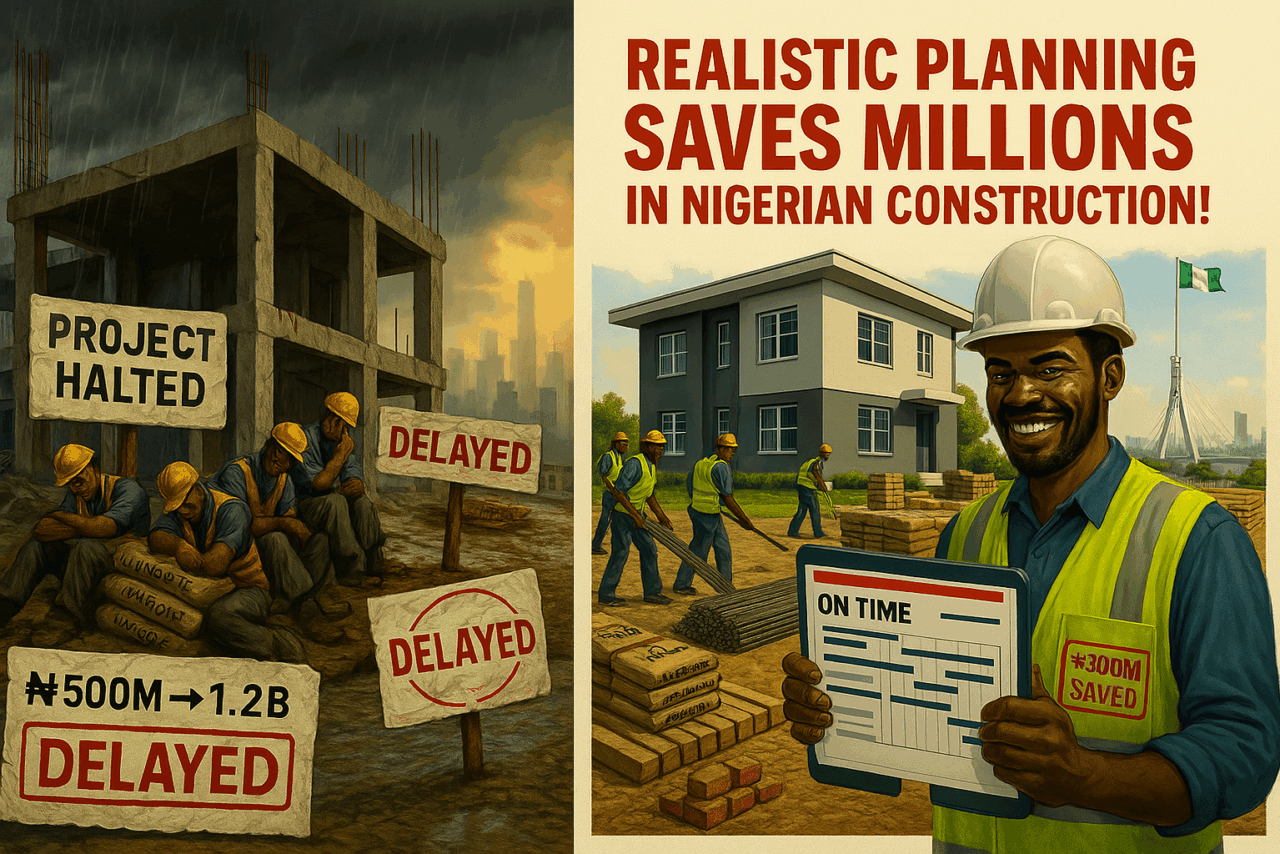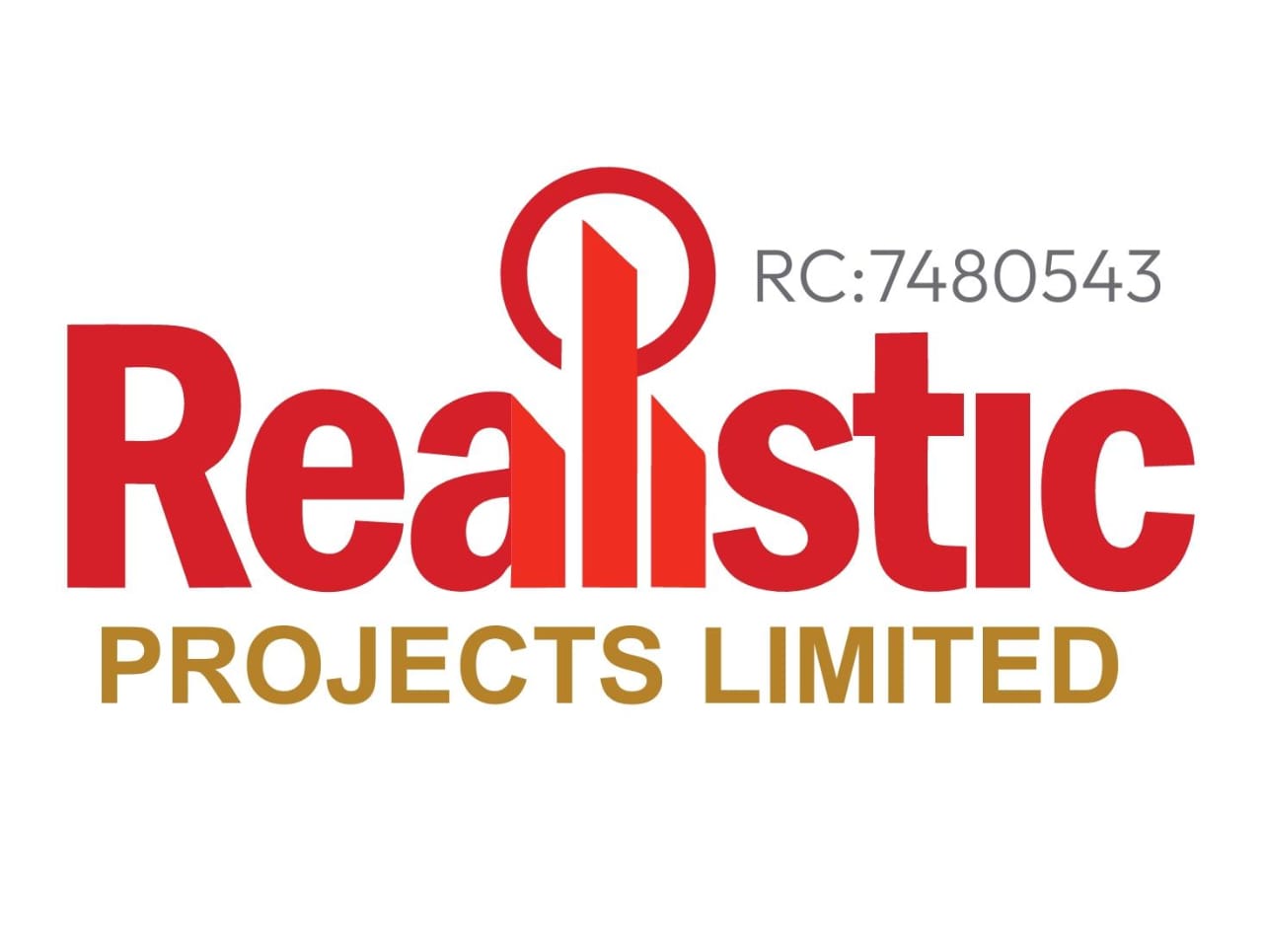
Realistic planning in Nigerian construction is not just smart rather; it’s how you avoid losing millions in unexpected costs. In Nigeria’s fast-paced and often unpredictable construction industry, one element separates failed projects from successful ones: realistic planning. Whether you’re building a residential property in Lagos, a commercial plaza in Abuja, or a private school in Port Harcourt, strategic Nigerian construction planning is crucial for ensuring project viability and success.
What is Realistic Planning in Construction?

Effective Nigerian construction planning not only addresses the immediate needs of a project but also anticipates future challenges and opportunities.
Realistic planning in Nigerian construction means approaching a construction project with clear, fact-based, and practical expectations. It considers your budget, timeline, materials, and the Nigerian environment, including local labor, regulatory delays, and logistics challenges. Incorporating Nigerian construction planning principles ensures you prepare for real-life obstacles instead of relying on ideal scenarios.
Why is Realistic Planning So Important in Nigeria?
The Nigerian construction landscape is filled with variables such as unstable pricing for materials, erratic power supply, fuel scarcity, weather extremes, and government bureaucracy. Without realistic planning in Nigerian construction, most projects go over budget, get delayed, or worse, get abandoned.
How Realistic Planning Saves You Millions
Pros and Cons of Realistic Planning in Nigerian Construction
Pros and Cons of Realistic Planning in Niger
With realistic planning in Nigerian construction, project stakeholders can minimize design errors and reworks, procure materials on time, and ensure every stage flows smoothly.
Here’s how:
1. You avoid overpaying contractors due to rework or rushed jobs.
2. You buy only the materials you need at the right time reducing waste and theft.
3. You can prioritize spending, focusing first on what’s most critical.
4. You reduce downtime and delays caused by poor logistics or unclear designs.
5. You protect your cash flow by aligning spending with construction phases.
Pros:
• Saves time and money
• Improves quality of construction
• Minimizes conflict between contractors and clients
• Builds investor and lender confidence
Cons:
• Takes time upfront to prepare
• Requires expert input (architects, quantity surveyors)
• May reveal that your budget is too small (but that’s a blessing in disguise)
Many Nigerian projects suffer from abandoned sites, sudden price hikes, and unplanned delays because of poor planning and unrealistic expectations. According to a study on cost overruns in Nigerian construction projects, issues such as poor financial control and contractor inexperience are major contributors to failed outcomes.
Real-Life Example: How a Developer Lost ₦15 Million
In Lagos, a mid-scale property developer began a residential estate project without a clear plan. He hired a contractor based solely on price and began construction before fully reviewing architectural and structural drawings. Within six months, the project had eaten up almost double the initial budget. Plumbing had to be redone, structural changes were mandated by a consultant midway, and suppliers changed prices mid-supply due to inflation. The cost of errors? Over ₦15 million lost all because realistic planning was ignored.
This is a story we see too often in Realistic Planning in Nigerian construction. Whether you’re building a duplex in Lekki or renovating a school anywhere in Lagos, starting without a realistic plan is a financial trap. At Realistic Projects Limited, we help you avoid these pitfalls by providing transparent budgeting, design-accurate planning, and real-time project oversight. Our Nigerian clients save millions in rework, inflation costs, and bad decisions just by planning with professionals.
Solutions: How to Plan Realistically in Nigeria
• Work with experienced professionals who understand the local landscape.
• Use a Bill of Quantities (BOQ) and architectural drawings to estimate accurately.
• Always include a contingency budget (10–20%) for price fluctuations.
• Phase your project if needed don’t overstretch.
• Use project management tools to monitor progress and spending.
• Ask the right questions before hiring any firm like those in our blog: Want to avoid costly mistakes? Read our post on 10 Smart Questions to Ask Before Hiring a Construction Firm in Nigeria.
Ready to Build Smart?
Want to avoid the stress, losses, and costly mistakes others have made? Invest in realistic planning in Nigerian construction with Realistic Projects Limited — we offer end-to-end solutions…
Book a free consultation today.
Email: realisticprojects.com | info@realisticprojects.com


